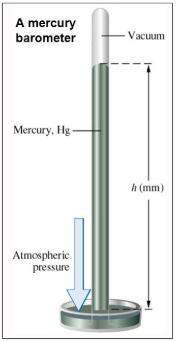
Chemistry, 31.08.2019 04:30 lgisselle629
Fleas are wingless insects that undergo complete metamorphosis with four stages: egg, larva, pupa, and adult. fleas prefer a warm, humid environment, with temperatures ranging between 70° and 90° fahrenheit and a relative humidity of 75% or more. under ideal conditions, the cat flea life cycle takes just 18 days, from egg to adult. fleas require a blood meal on a regular basis. they prefer blood from your pet, but they will also fleas will bite you! bites are common around a person’s ankles or on their feet. the bites itch! the female flea may deposit up to 50 eggs per day on your dog or cat. as your pet walks around your home, many of the flea eggs fall off. flea eggs are tiny so they can go unnoticed in your pet's bedding, in carpets, or on upholstered furniture
according to the passage, the flea is a and your pet dog is the
a) host; prey
b) parasite; host
c) parasite; prey
d) predator; prey

Answers: 1
Another question on Chemistry

Chemistry, 22.06.2019 04:20
Which of the following is true for the actual yield of a reaction? it is always calculated as a ratio. it is the yield from the excess reactant. it is the yield from the limiting reactant. it is always less than the theoretical yield.
Answers: 1

Chemistry, 22.06.2019 06:00
Ethanol (c2h5oh) is produced from the fermentation of sucrose in the presence of enzymes. c12h22o11(aq) + h2o(g) 4 c2h5oh(l) + 4 co2(g) determine the theoretical yield and the percent yields of ethanol if 680. g sucrose undergoes fermentation and 326.5 g ethanol is obtained. theoretical _ g _ percent %
Answers: 1

Chemistry, 22.06.2019 17:10
Increasing the substrate concentration in an enzymatic reaction could overcome which of the following? a) the need for a coenzymeb) allosteric inhibitionc) competitive inhibitiond) insufficient cofactors
Answers: 1

Chemistry, 22.06.2019 20:20
The characteristics of two different types of reactions are shown below: reaction a: electrons are gained by the atoms of an element. reaction b: protons are lost by the atom of an element. which statement is true about the atoms of the elements that participate in the two reactions? their identity changes in both reaction a and reaction b. their identity changes in reaction a but not in reaction b. their identity changes in reaction b but not in reaction a. their identity remains the same in both reaction a and reaction b.
Answers: 1
You know the right answer?
Fleas are wingless insects that undergo complete metamorphosis with four stages: egg, larva, pupa,...
Questions

History, 11.03.2020 04:43

Mathematics, 11.03.2020 04:43

English, 11.03.2020 04:43


Physics, 11.03.2020 04:43



Biology, 11.03.2020 04:43


Mathematics, 11.03.2020 04:43

Mathematics, 11.03.2020 04:43












